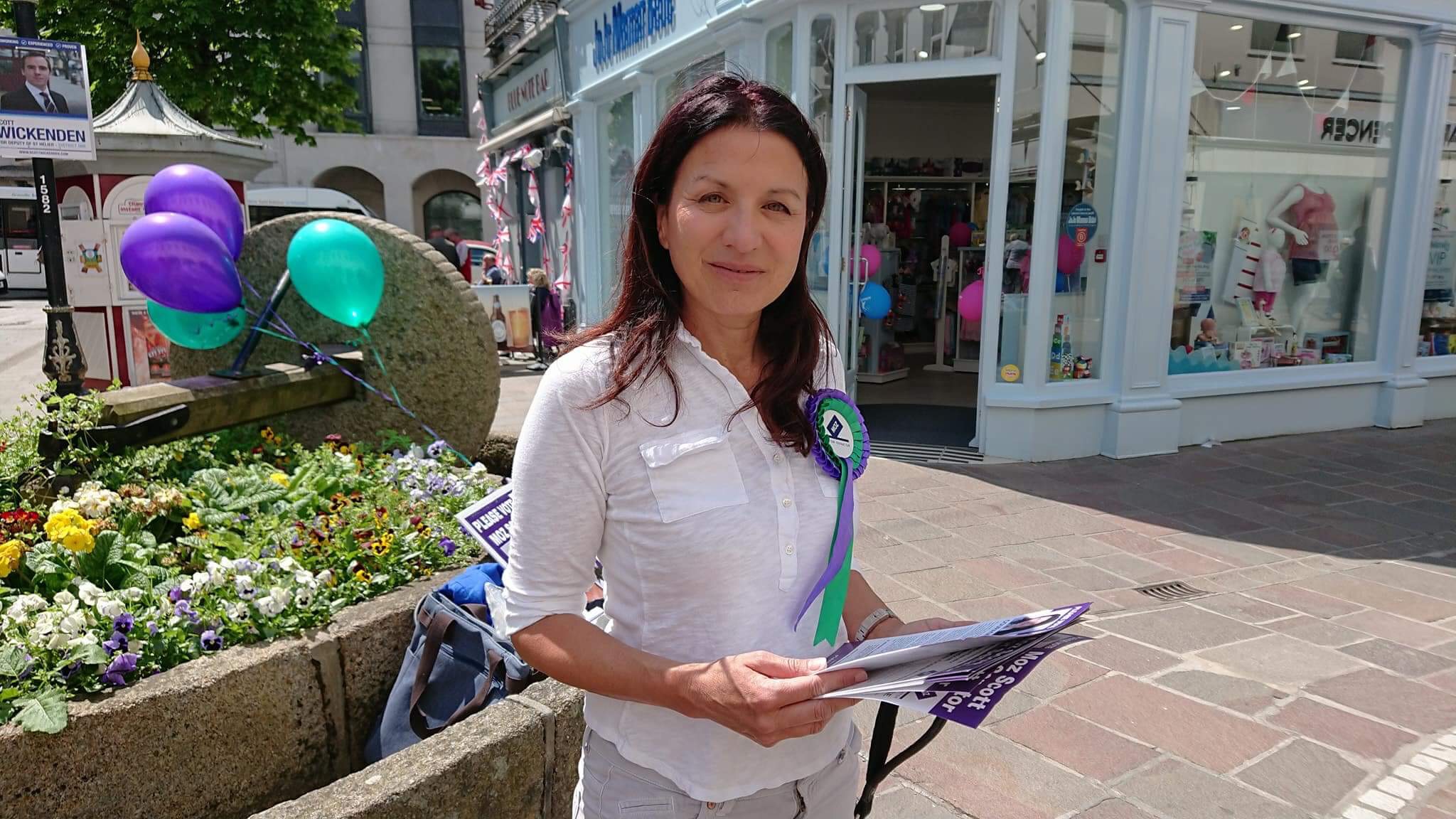
The value of your voice and of the pound in your pocket are important to me. I have had to consider complex matters while finding ways to accelerate improvements in public services.
I supported the reinstatement of Senators to provide you with a greater say over who should be in the States Assembly. I am working on proposals to address district representation imbalance by 2030.
I have continued to push for improvements in pensioner benefits, housing availability in the Parish, public road and toilet maintenance, and pedestrian safety measures.
Lack of government funding is a hurdle. Accordingly, I did not support Deputy Tadier’s amendment to the 2025-2028 government Budget to divert funding towards Arts, Heritage & Culture of £3.37million on top of its proposed RPI-linked £11.5-12 million per annum.
In my Assistant Ministerial role, I am seeking to improve the handling of complaints against public service providers – including utility companies, government-funded agencies, regulatory authorities and charities – with the help of your experiences and views.
Please complete the public survey form Feedback on Public Services consultation by 6th May. Paper copies are available in Parish Halls, library branches and the Citizens Advice Bureau.
Who should consider standing for election in June 2026… why… and how? Could one of the quality candidates needed to improve public services, the value of your voice and the pound in your pocket be you?
The next election of members of the Island’s States Assembly – Jersey's parliament – will be on Sunday 9th June 2026. We live in challenging times, both globally and locally. The need for good government in Jersey is more important than ever.Unfortunately, the best candidates for government aren’t guaranteed. Too many of us in our Island community can think of reasons not to stand for election.
This part of my article looks at why you may wish to consider standing and what to do next if you wish to put yourself forward.
Who should stand for election?
Any British citizen over 18 who has been resident in the Island for a while can stand for election.
Whether the role of a States Member could work well for you depends partly on where you are on your career path and your future career plans. Being a States Member is unlikely to offer you much in the way of progression in any other career.
While the salary can be an attraction for some, and you do not need professional qualifications to stand, there are many rules to learn as a States Member. A lot of reading and understanding of complex matters is necessary to do the job well. This, and the volume and variety of communications to handle, can be overwhelming for new States Members without any professional training, notwithstanding the support offered by the States Greffe to help with workload and stress.
Why?
1. You get frustrated by the Island’s government and want to see improvements.
Patience, persistence and a clear focus are helpful in the role of a States Member. The pace of change and improvement in government can be slow, partly due to democratic processes and partly due to limited government/Island resources that are needed to support the community in many ways.
Being elected brings you closer to understanding and influencing the way that government operates and its direction of travel, using your skills and experience.
2. You know it’s in the interest of you, your family, friends and community that an adequate number of candidates stand who know their way around a balance sheet and have commercial experience. You also know they may not materialise.
One reason for standing for election is to give voters more choice. Whether you win or lose, you still are performing a public service in standing.
One attraction in being a candidate is the choice you give yourself. Is there any other candidate whom you are likely to know and trust as much as yourself?
3. You want to do something different, non-routine, useful to the community and challenging for your own personal development, knowing research suggests doing some sort of work helps you live longer.
The work of a States Member is varied and offers plenty of opportunity to use skills learned in previous professions.
You don’t answer to a boss as a States Member (not if you stand as a true independent, at least). You answer to the electorate (and possibly sponsors, depending on how you fund your campaign). There is plenty of opportunity for working flexibly around States sittings (they take place roughly every three weeks in term time).
The current salary of £57,296.40 p.a (plus pension contributions) of a States Member won’t match that of some professions. It nevertheless offers more compensation than a voluntary role. It also provides ample opportunities for learning and personal growth, especially for those who enjoy facing challenges in various forms.
4. You were annoyed at your reduced right to vote in the 2022 election or the move to reinstate Senators in 2025.
Democracy can be fragile.
Many voters across the Island felt disenfranchised by having fewer votes in the 2022 election than they did in the 2018 election. This was the result of the removal of Islandwide voting by the States Assembly elected in 2018. Consequently, Islanders had less of a say on who should be in the States Assembly.
Currently, the voting district system, including the 'super constituencies,' aims to respect Parish boundaries but fails to create equally sized voting districts. As a result, some populations have more representation in the States Assembly than others.
In addition, as was highlighted in a 2012 report commissioned by the former Electoral Commission, having a voting district represented by more than one representative, using the system which was adopted in 2022, distorts the representation in the States Assembly of votes cast for political parties and campaign groups if they focus on their ‘home turf’ without fielding candidates Islandwide.
The reinstatement of Senators was narrowly approved in the States Assembly after three attempts, each accompanied by a contentious and hard-fought debate.
The next States Assembly will need to make more changes to the electoral system if it is to address remaining structural imbalance and inequalities. The way forward (or backward, or in the direction of disaster, depending on your point of view) depends on the votes of the members of the next States Assembly. If you feel strongly on the subject, maybe you should stand?
Which type of States Member?
With the States Assembly having approved the reinstatement of Senators, there should be three different types of States Member in the next States Assembly: Senators, Deputies and Constables. In the absence of further changes, all would have a single vote in the States Assembly, which mainly makes decisions on Islandwide matters.
St Brelade would retain its Constable, but the number of Deputies would be reduced to three. A Deputy can hold various States Member roles, such as a Minister, Assistant Minister, Committee or Scrutiny Panel member or Chair. Given that the role of Constable entails responsibilities in Parish administration, it is less common for Constables to serve as Ministers or Scrutiny Chairs, owing to the additional Parish-related workload.
Like Deputies, Senators can serve in any role in the States Assembly. Unlike Deputies, Senators are elected Islandwide.
This can appeal to those who have identified potential support in communities beyond the confines of a single constituency. In 2018, when I first stood for election, I chose to stand as a Senator because I had been most active in the Islandwide finance industry community rather than in my home Parish (though I had campaigned to protect St Brelade’s Bay from insensitive development as Chair of the St Brelade’s Bay Association). I also had concerns that the constituency-based workload of a Deputy, combined with the Islandwide responsibilities, could sometimes conflict and be overly challenging to manage.
Standing as a Senator also can be useful to seasoned States Members who plan to put themselves forward in the States Assembly as Chief Minister: the Islandwide vote helps to demonstrate the extent of their Islandwide support.
The number of candidates likely to compete for a position may be worth bearing in mind too. In the last election, there were fewer than 3 candidates per Deputy role. This was a higher ratio than the number of candidates who stood for the 8 Senatorial positions in 2018 (the adopted Proposition would increase the number of Senatorial positions to 9).
The role of Constable was uncontested last year. With the introduction of the 'None of the Above' (NOTA) option, an uncontested election for Constable will be re-run if NOTA receives more votes.
How?
1. Knowhow
Information on:
- how to stand for election
- necessary paperwork
- rules regarding campaigning and donations
is available on the Vote.je website.
Before I stood in the 2018 election, I sought the guidance of a former States Member whom I respected at the time. His support was extremely helpful to me as an inexperienced election campaigner. Most former States Members are likely to be supportive of future candidates in this way.
2. Publicity
Vote.je and the local press assist with campaign publicity. This often is enough to offer information on core values/mini manifestos and professional background.
Most candidates produce, and find ways of delivering, campaign leaflets with the help of supporters and/or the postal service (be aware that some leaflets may not be delivered by Jersey Post as some households ask not to have unsolicited mail).
Social media is a useful and cheap campaign resource. Research in 2018 suggested that candidates’ social media platforms were visited more by voters than campaign websites.
Door knocking is a powerful way of raising awareness of a candidacy (although not welcomed by every household).
3. Sponsorship
As mentioned above, Vote.je provides free assistance with campaign publicity. Many media outlets offer free publicity too, although this often is restricted to specific questions asked from candidates. Additional personal social media campaigns are relatively inexpensive. However, if you wish to compete with those who support their campaigns with posters, banners and personal printed leaflets, funds need to be found to do so. There are statutory limits on how much any candidate can spend on campaigns.
Supporters and political parties may provide funding but they may also expect you to promote their ideologies and political objectives, sometimes with rules on how you should vote in the States Assembly. This can create personal discomfort when a parliamentarian’s views differ from the party line (as former UK politician Rory Stewart described in his book “Politics On the Edge”).
Shared platforms and shared manifestos may be a useful way of spreading costs and useful for the electorate. However, independents are unlikely to wish to be seen to compromise their independence, so initiatives like this need to be handled delicately.
Help is at hand…
I would be happy to offer further information and advice to those considering standing for election in 2026.
Serving as a States Member can have its frustrations and challenges, but the role remains important for our Island’s democracy, as does having a choice of candidates at election time.



